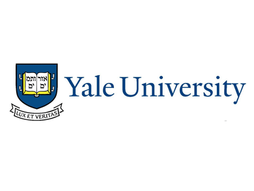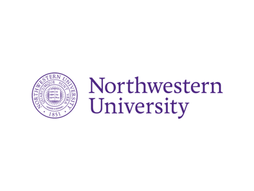Everything You Need to Know About University of Minnesota's Discover STEM Summer Program for High School Students
In a highly competitive admissions landscape, universities tend to look for students who demonstrate a genuine interest in STEM and have already spent time and effort preparing themselves to enter the field. Participating in pre-college STEM programs can help you demonstrate your commitment to learning beyond the classroom and your willingness to explore hands-on experiences. Additionally, these programs give you a taste of college life and may help you refine your career interests early on.
This is where programs like the University of Minnesota’s Discover STEM, the subject of our blog post today, come in. In this blog, we’ll break down Discover STEM’s structure, eligibility, application process, and some pros and cons of participating.
What is the Discover STEM Program?
Discover STEM at the University of Minnesota is a free, week-long summer program designed to introduce high school students to careers in science, technology, engineering, and mathematics. The goal of the program is to give you an in-depth understanding of STEM careers while also providing you with exposure to current research topics, laboratory tours, science experiments, and technology demonstrations.
You will have the opportunity to interact with university faculty, students, and industry experts and get exposure to cutting-edge research and technology. The program takes place on the University of Minnesota Twin Cities campus, letting you experience what college life in STEM is like. The program is fully sponsored by 3M, allowing the University of Minnesota to offer the program for free.
How is the Discover STEM program structured?
Discover STEM is structured to provide an intensive learning experience over the course of five days. While 2025 dates haven’t been announced yet, they are likely to be similar to the 2024 dates. Three sessions were available:
July 29 – August 2, 2024
August 5 – 9, 2024
August 12 – 16, 2024
Classes are held from 9 a.m. to 4 p.m. every day, Monday through Friday.
Over the week, you’ll engage in interactive laboratory tours and science experiments, and attend lectures from the College of Science and Engineering faculty. With access to the College of Science and Engineering’s facilities and guidance from both faculty and graduate researchers, you will get to experience real-world applications of STEM concepts.
Is it prestigious?
Since Discover STEM is fully funded, has a limited intake, and has a fairly selective acceptance process, being part of this program sets you apart from other applicants. The experience you gain through direct exposure to university-level research and projects can enhance your college applications and career prospects. However, since the program only lasts a week and is only offered in-person, that takes away from the prestige somewhat. Overall, we would rate this as a slightly prestigious opportunity but still a good introduction to STEM.
Who is eligible to apply?
To apply for the Discover STEM program, you must be a current high schooler entering 11th or 12th grade. Your application is prioritized if you have not participated in Discover STEM previously.
How does the application process work?
Applying to the Discover STEM program requires an online application in which you must provide:
Your high school transcript
A recommendation from a science, technology, engineering, or mathematics teacher or high school counselor
A personal statement
Admissions decisions are made on a holistic basis, and you’re encouraged to address any obstacles to getting an education you may have faced in your application. You can also highlight any community service commitments, leadership roles, significant family responsibilities, and more.
All applications need to be submitted by April 19.
Pros and Cons of the Discover STEM Program
Pros:
It’s a free program: Discover STEM is completely free to apply and attend, making it a highly accessible learning opportunity.
Good introduction to STEM: The entire program is structured to provide a grounded understanding of several key STEM concepts, exposure to potential career paths, as well as plenty of practical applications and demonstrations to further enhance your learning.
College experience: Being on campus and interacting with university students gives you an early taste of college life.
Cons:
Selective acceptance: Due to its limited intake and fully funded nature, acceptance into the program can be competitive, and you might need a backup option for your summer.
Extremely short duration: The program lasts only a week, which means the learning you can attain is limited.
In-person only: This is a day program, with transportation and housing not provided. If you’re not able to commute to the University of Minnesota’s campus, you will unfortunately not be able to take part in this program.
Our Review
In conclusion, the University of Minnesota’s Discover STEM program offers a good opportunity for high school students to gain foundational STEM knowledge and insight into future career paths. While its fully funded nature makes it a great choice if you’re able to commute to the University of Minnesota’s Twin Cities campus, note that it is still just a week-long introduction to STEM.
One other option—the Lumiere Research Scholar Program
If you’re interested in pursuing independent research, you could also consider applying to one of the Lumiere Research Scholar Programs, selective online high school programs for students founded with researchers at Harvard and Oxford. Last year, we had over 4,000 students apply for 500 spots in the program! You can find the application form here.
Also check out the Lumiere Research Inclusion Foundation, a non-profit research program for talented, low-income students. Last year, we had 150 students on full need-based financial aid!
Stephen is one of the founders of Lumiere and a Harvard College graduate. He founded Lumiere as a PhD student at Harvard Business School. Lumiere is a selective research program where students work 1-1 with a research mentor to develop an independent research paper.









